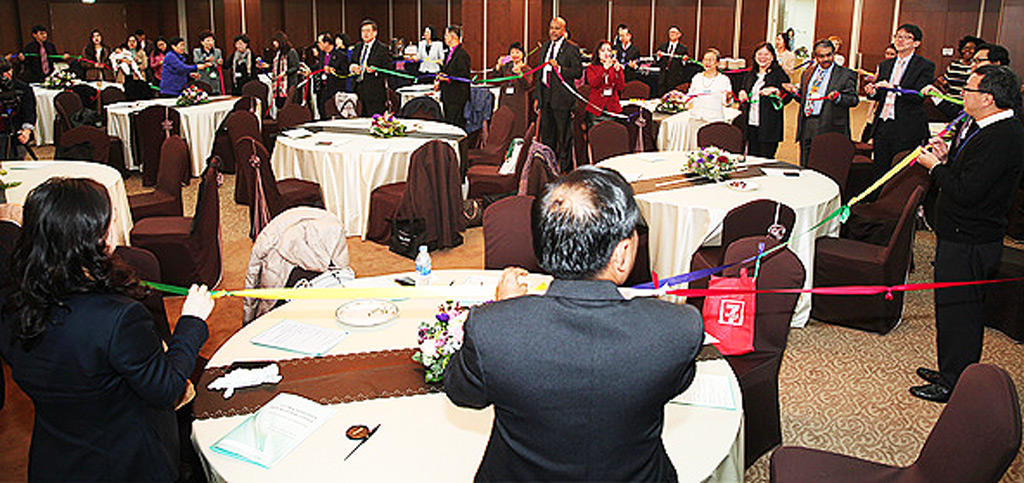“We are partners together in the ministry of Asian Christians,” says Bishop Hee-Soo Jung, president of the UMC Global Mission
 Ecumenical leaders and UMC partners at the opening of the Asia regional office of the UMC Global Mission in Seoul, South Korea.
Ecumenical leaders and UMC partners at the opening of the Asia regional office of the UMC Global Mission in Seoul, South Korea.
In a solemn dedication service held at the Kwang Lim Methodist Church in Seoul, South Korea, the Global Mission of the United Methodist Church (UMC) opened its Asia regional office on 23 March 2017 in the presence of a large number of national and international ecumenical and ecclesiastical leaders, as well as the UMC’s partners in mission from various Asian countries.
Bishop Hee-Soo Jung, president of the General Board of the Global Ministries (GBGM) of the United Methodist Church, who led the dedication service, said, “As we celebrate the opening of the new office, we make our “Global Ministries” more than just a name. It is our witness to go, be present, and work where the need and the opportunity is the greatest.”
“In a networked, connected world, we are becoming a better connectional church. As part of the growing global community, the General Board of the Global Ministries becomes a midwife and steward to our expanding ministries with all the Methodist families in the world. It is a keen awareness of full partnership together for God’s cosmic kingdom, and we come with a humble mind to reach out to all of Christ’s churches in the world,” Bishop Jung stated during his sermon at the service.
The Korean-American Bishop of the Wisconsin Episcopal Area of the United Methodist Church in the United States of America, who chairs the Board of the Global Ministries of the UMC said, “This is not a ministry of the United Methodist Church in the United States done “for” or “on behalf” of others. We are not in ministry “to” Asia. No, in this newly emerging reality, we are partners together in the ministry “of” Asian Christians, shared “with” the United Methodist Church. We are brothers and sisters in Christ, one body, working together to see God’s will come to fruition.”
The General Secretary of the Global Ministries of the United Methodist Church, Rev. Dr. Thomas G. Kemper, in his welcome address, said that the newly established regional offices of the Global Ministries of the UMC are new initiatives for building stronger connections and effective partnerships with greater regional presence, localised perspectives and increased dialogue with partners in strategic locations around the world.
Dr. Kemper, head of the GBGM headquartered in Atlanta, USA added that, “the dedication of the new regional office in Seoul, South Korea for the Asia region is cause for much celebration as the UMC cherishes its strong history of missionary service, and commits to continue its partnership across the continent.”
Rev. Paul Kong has been appointed to lead the new regional office located at the headquarters building of the Korean Methodist Church in Seoul, South Korea.










